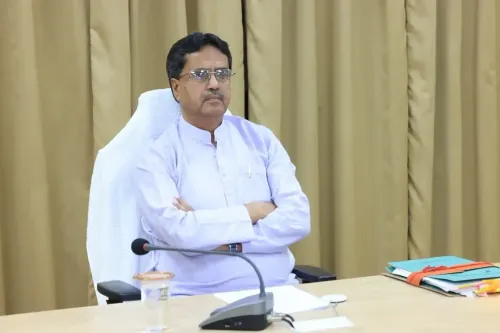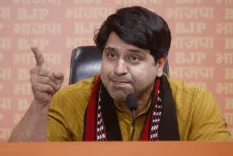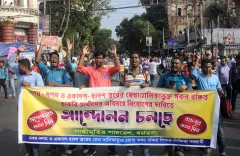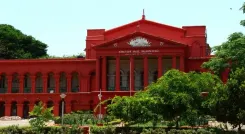Will the Lights Go Out on April 30? AIMPLB Calls for Fresh Protests Against Waqf Act

Synopsis
Key Takeaways
- AIMPLB calls for community action against the Waqf Act.
- Lights will be turned off from 9:00 p.m. to 9:15 p.m. on April 30.
- The protest aims to unite various marginalized groups.
- District-level demonstrations are planned across the country.
- Asaduddin Owaisi supports the protest against the Waqf legislation.
New Delhi, April 29 (NationPress) Following a temporary halt in nationwide protests against the Waqf Act, the All India Muslim Personal Law Board (AIMPLB) has renewed its appeal to the Muslim community to stand up against this ‘discriminatory and unconstitutional’ legislation.
The AIMPLB is urging individuals to turn off the lights in their homes, offices, and businesses on April 30 from 9:00 p.m. to 9:15 p.m., as a form of protest against the recent amendments to the Waqf legislation.
“The revised Waqf Act is contentious, inequitable, and contradicts the Constitution,” the statement read.
“We call upon all citizens, particularly Muslims, minority groups, marginalized and underprivileged people, civil society organizations, and all those who cherish justice to unite against this governmental wrongdoing and oppression. We urge you to express your solidarity by turning off the lights in your homes, shops, offices, and business establishments for just 15 minutes at 9:00 p.m. on April 30,” the AIMPLB stated officially.
Dr. SQR Ilyas, spokesperson for the Muslim Personal Law Board and national coordinator of the Waqf Protection Campaign, noted that although this initiative is symbolic, it will powerfully convey the message of dissent.
The Muslim organization has organized district-level protests, demonstrations, and human chain activities on April 30 to voice its opposition.
This campaign involves various programs taking place across the nation, including large public gatherings in multiple cities and roundtable discussions with fellow citizens and civil society.
AIMIM leader Asaduddin Owaisi has also called on the public to turn off their lights at home to strengthen the demonstration against the Waqf legislation.
The AIMIM MP from Hyderabad stated that the Act undermines the Constitution of India, particularly the fundamental rights, and disrupts the operations of Waqf Boards.
In a previous address, Owaisi committed to continuing protests against the Waqf (Amendment) Act until it is rescinded.








